

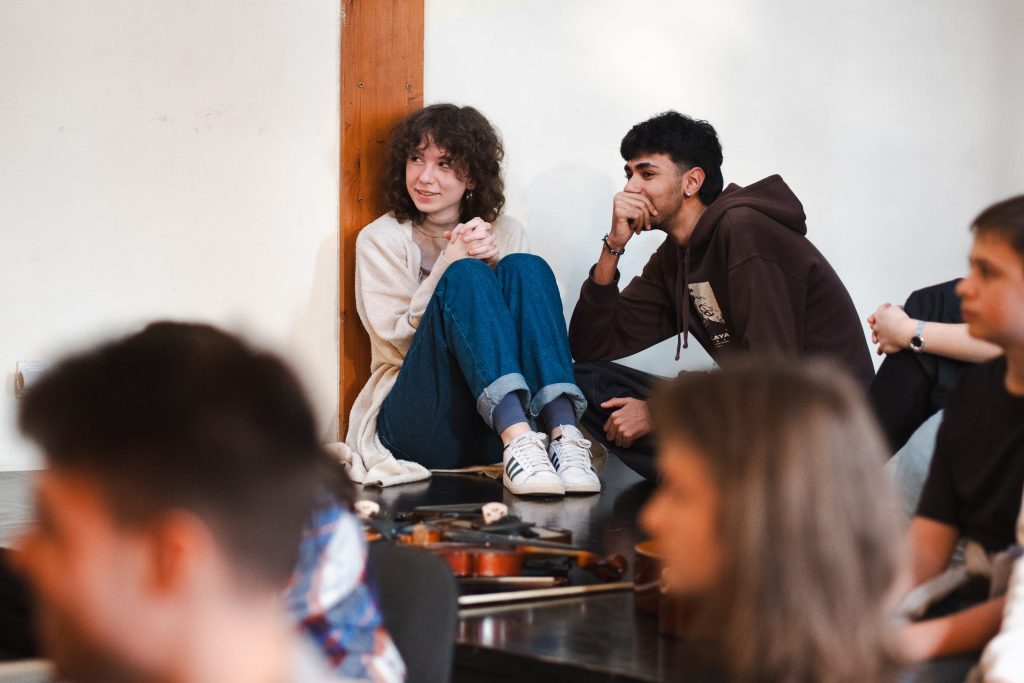
Held on February 8th, 2025 in Tuzla, “The Power of Music” session launched with a warm and creative energy. This session focused on music’s historical role in peace movements and revolutions that shaped humanity. Participants took part in “Music Speed Dating,” an interactive icebreaker where they matched countries with traditional songs or instruments, leading to fast-paced cultural exchanges and new friendships.
A playful Kahoot quiz tested their knowledge about music’s influence on social change, covering everything from anti-war anthems to songs that unified divided communities. As the workshop unfolded, participants split into smaller groups to explore how music can influence peacebuilding in fields like education, politics, and the arts.
Two moving stories grounded the session in real-life examples: the peaceful revival of Ladino music by the Sephardic Jewish community in Sarajevo, and the powerful legacy of the Roma anthem Đelem Đelem. Participants not only analysed the song’s meaning but also learned to play and perform it together, turning musical heritage into a living, shared experience. The session concluded with hand-written messages for peace, left as a collective reminder of what harmony, in sound and society, can look like.
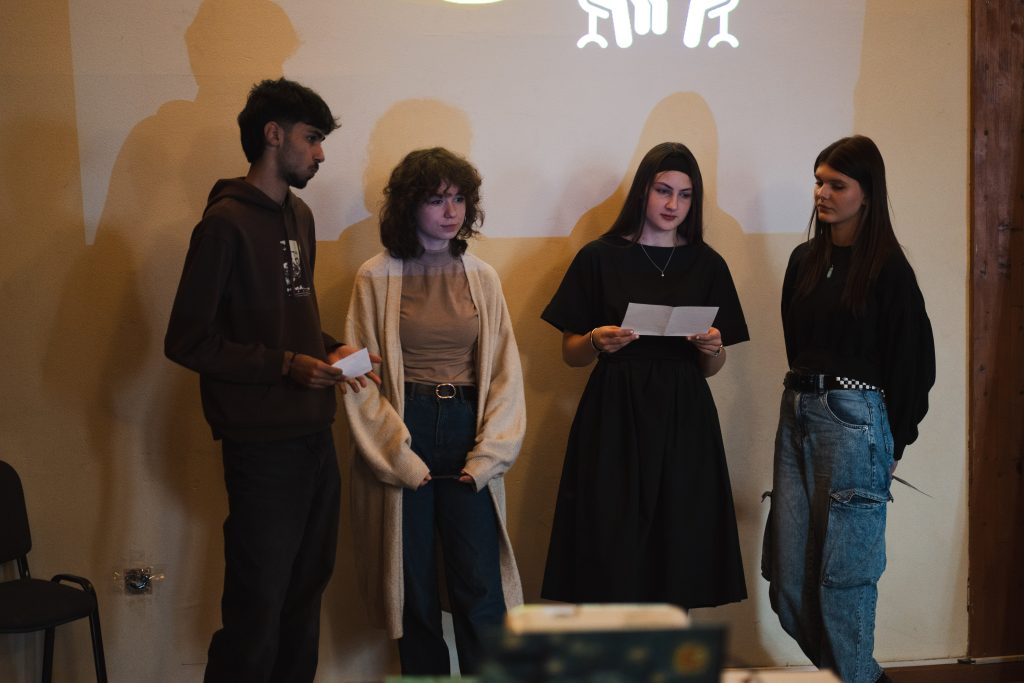
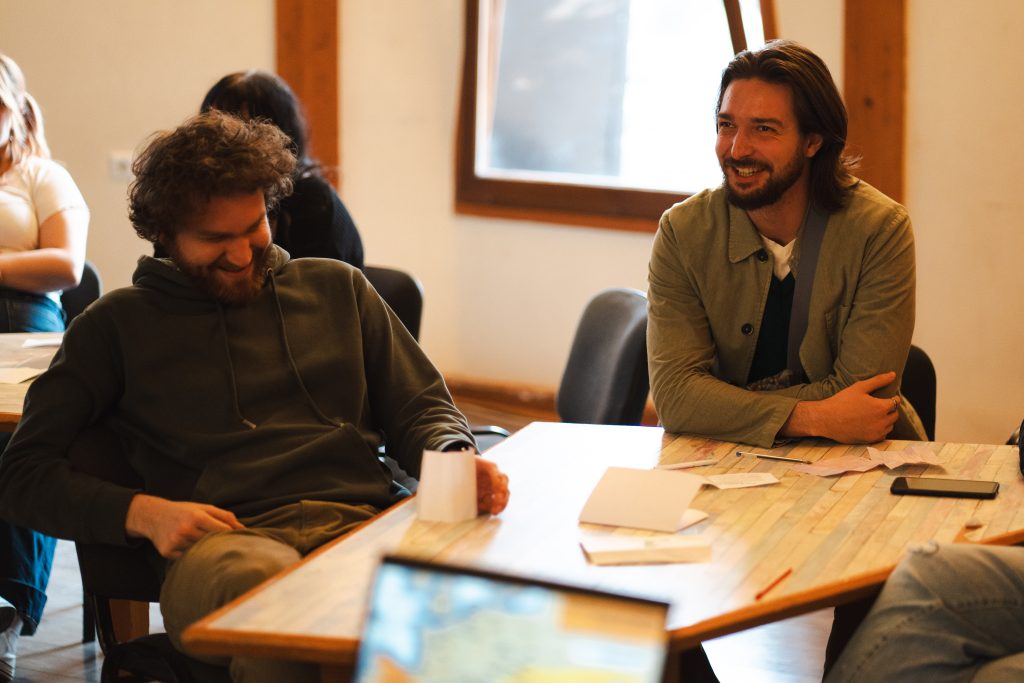
The second session shifted the focus from history to the present and future, asking: How can technology and artificial intelligence support (or threaten) music’s role in building peace? The day began with Live Music Chairs, a musical twist on a classic game where those “out” joined the live band slowly building an impromptu orchestra. This activity set a tone of joy, spontaneity, and collaboration.
Participants then worked in teams to research songs that changed the world, such as Imagine and Redemption Song, and presented how these tracks contributed to global movements for peace and justice. From there, the group explored modern music-making tools, including real-time AI software that can generate melodies and lyrics in seconds.
This led to a structured debate: Can AI Music Serve Peace? where young people took on opposing roles and critically discussed the emotional, ethical, and social implications of AI-created music. One participant commented, “AI can write a song, but can it feel pain, joy, or hope? That’s what peace needs.”
The debate was followed by a live demonstration of AI-assisted music creation, culminating in the group learning and playing a newly generated song. Using a MENTI board, participants anonymously shared what peace “sounds like” to them today, offering words like “harmony,” “freedom,” and “togetherness.”
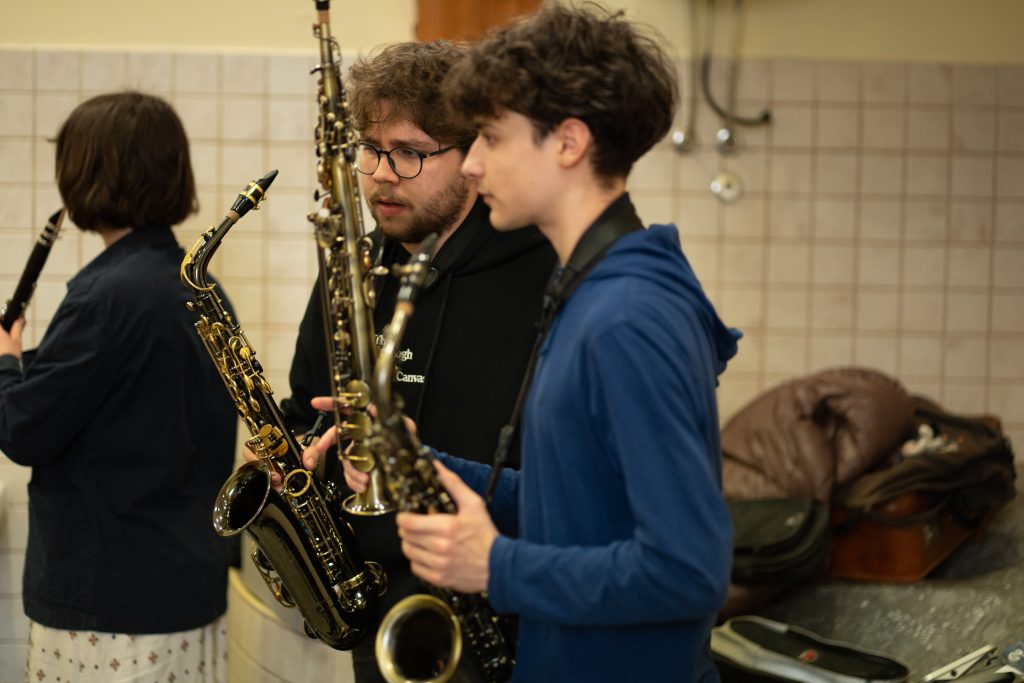
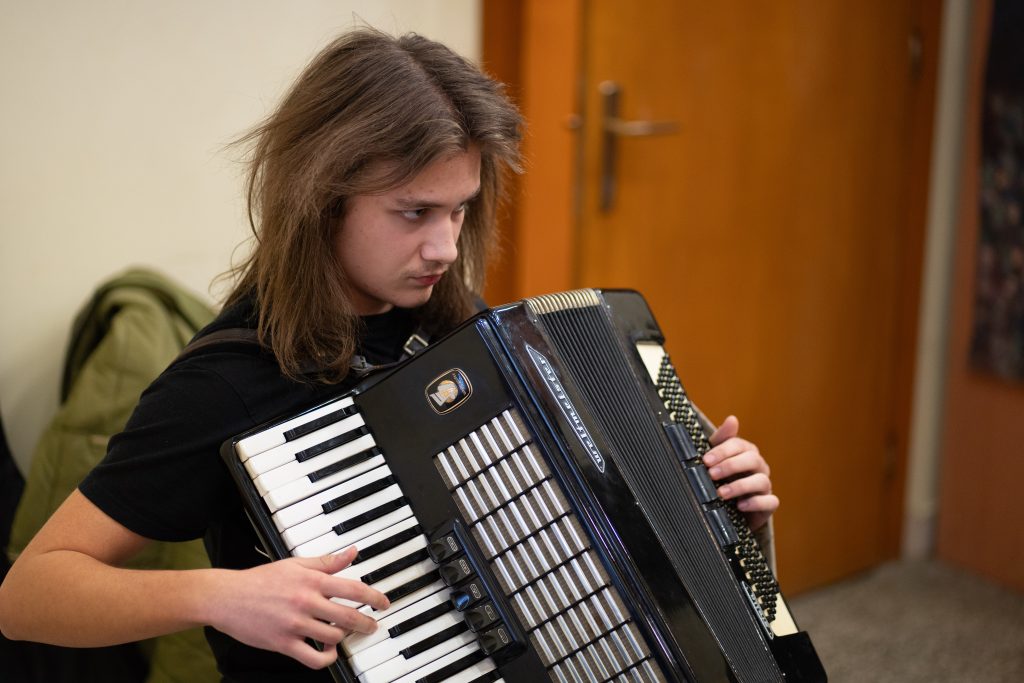
Both sessions highlighted that while tools and formats evolve, the core of music’s power remains the same: connection, emotion, and collective expression. Whether through ancient folk instruments or AI-driven platforms, music still holds immense potential to inspire, heal, and bring people together. And in the hands of young changemakers, its future as a peacebuilding force looks both bright and bold.
